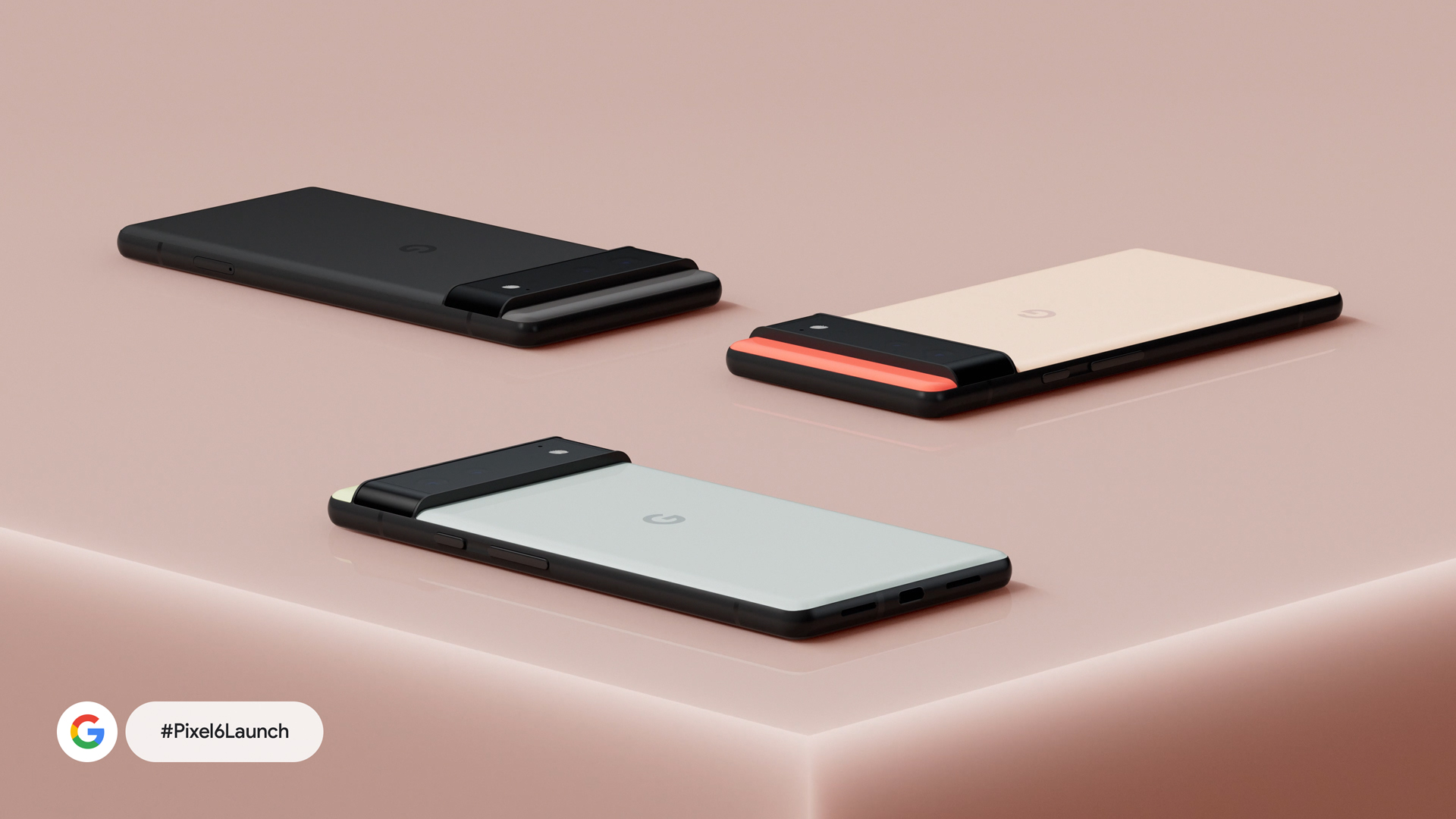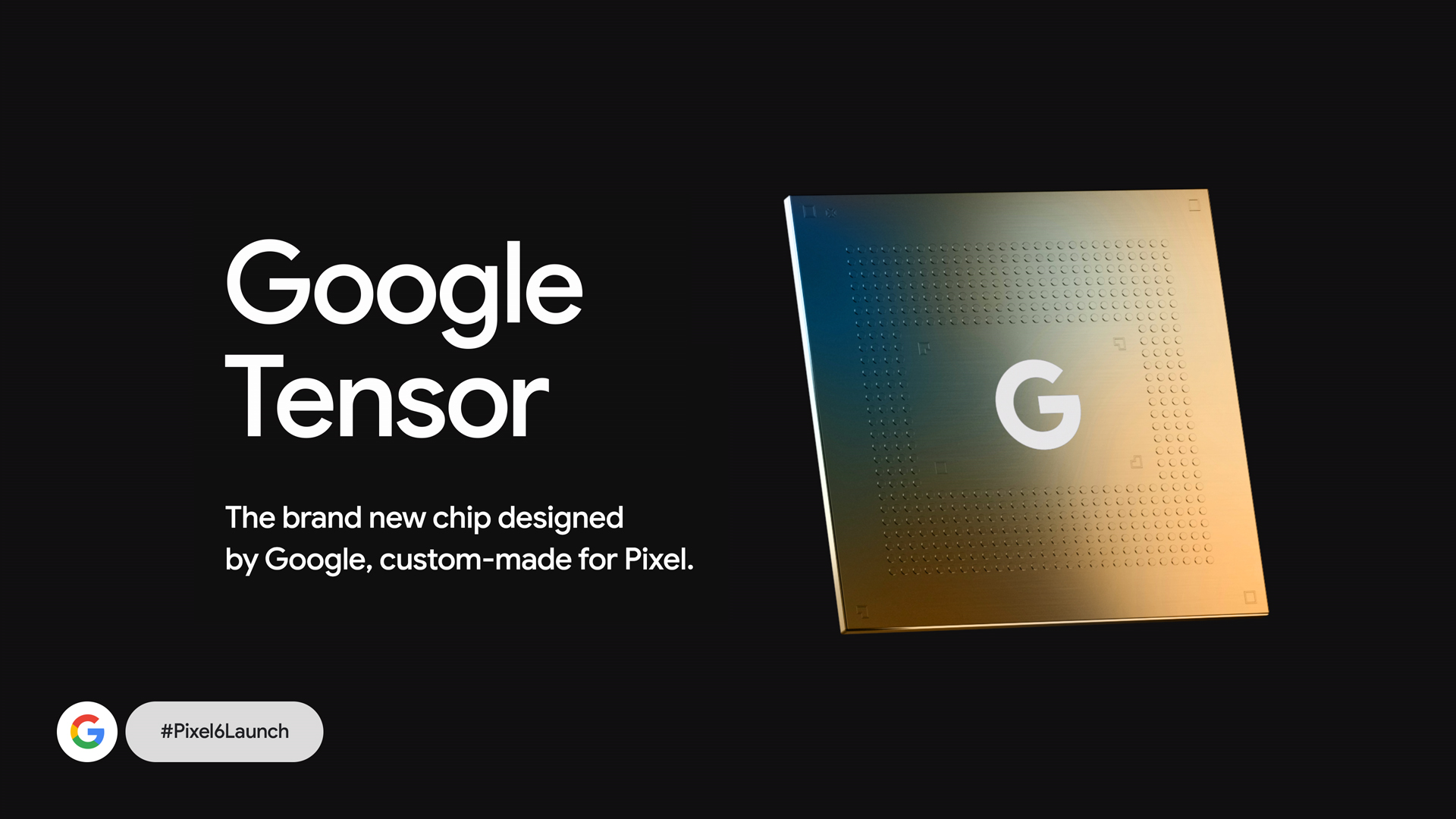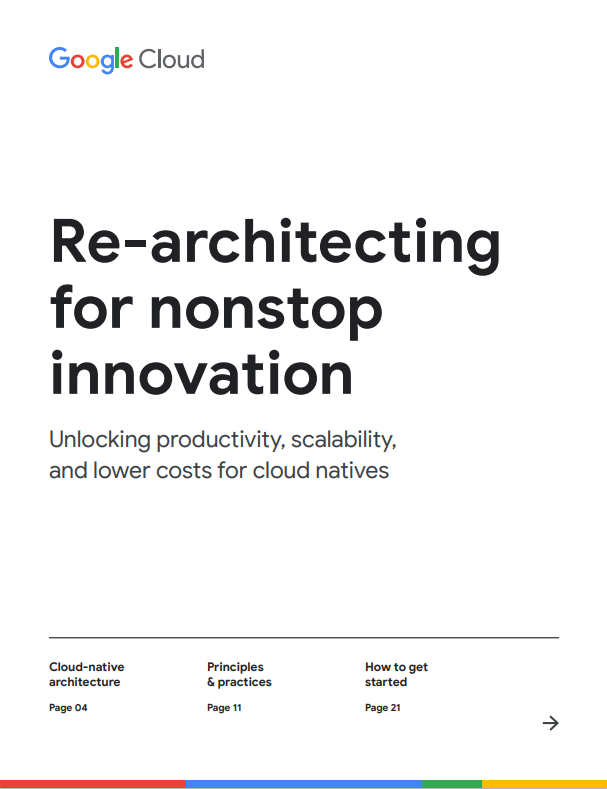Google launches Pixel 6 and 6 Pro with custom Tensor chipset
Machine learning-infused handsets look to undercut Apple and Samsung with competitive prices


Google has unveiled its flagship Pixel 6 and Pixel 6 Pro smartphones, with both featuring its first in-house designed 'Tensor' processor.
The Pixel line has been priced in the middle of the market with the Pixel 6 costing £599 and the larger Pixel 6 Pro at £849, with both set to go on sale 28 October.
The Google Pixel 6 will cost almost the same as the Pixel 5, which was priced for an "economic downturn", but it's arguably more feature-rich than its predecessor. Meanwhile, the Pixel 6 Pro is the largest Pixel handset Google has ever launched, replacing the 'XL' model that featured in the Pixel 4 series.
"This year is quite a bit different - we have state-of-the-art hardware, which means Pixel can deliver even more impressive real-world performance, as well as new AI-driven experiences that have never been possible before," said Rick Osterloh, Google's VP of hardware.
Beyond the size difference, the Pixel 6 Pro has a few more features and more 'premium' specifications. Its 6.7in OLED display has a 1,440x3,120 resolution and 120Hz refresh rate, whereas the standard Pixel 6's 6.4in screen supports just 90Hz.
You also get 12GB of RAM on the Pixel Pro, compared to 8GB on the Pixel 6, but both come with 128GB or 256GB storage options. Both also feature 50MP and 12MP rear cameras, but the Pixel 6 Pro has an additional 48MP telephoto lens with 4x 'high res' optical zoom and 4K video capabilities.
There is also likely to be more battery life on the Pixel 6 Pro as it has a larger 5,003mAh battery. The standard Pixel 6 packs a 4,614mAh battery.
Get the ITPro daily newsletter
Sign up today and you will receive a free copy of our Future Focus 2025 report - the leading guidance on AI, cybersecurity and other IT challenges as per 700+ senior executives
Powered by Tensor
A key element of the new hardware is Google's in-house developed Tensor processor which enables a range of innovative AI and ML-based features, including its eye-catching camera software.
"Google Tensor is the biggest mobile hardware innovation in the history of the company. It's the culmination of years of investment in AI, and Google's deep experience in silicon," Osterloh said.

The system is built on the idea that it needs to be heterogeneous and capable of controlling performance for individual elements, rather than beating its rivals when it comes to clock speeds. The company cited the Pixel 5 here, which was fitted with a low-grade Snapdragon 765G, which didn't top any benchmarking lists, but the still delivered solid performance.
With Tensor, Google says it's even faster but is keen to stress it's more about how it uses its power than having more than it needs.
RELATED RESOURCE

Re-architecting for nonstop innovation
Unlocking productivity, scalability, and lower costs for cloud natives
An example of this is the computational power used in its photography software. From ML-enabled edits, the Tensor chip promises to offer users an unprecedented camera experience. This includes the ability to remove unwanted extras in a photo - such as a person or object in the background - and improvements for shooting people of colour, whose skin tones have not always been properly showcased in AI software.
"Pixel 6 is leagues ahead of our previous Pixel Cameras, from the hardware, to the software, to the computational photography," said Brian Rakowski, VP of product management.
The Tensor chip is also powering a range of features that aim to make life easier, from text recognition to live translations. The latter was demonstrated during the launch with organisation consultant Marie Kondo, who spoke into the handset in her native Japanese. The Pixel 6 repeated her words in English, in an instant.
Bobby Hellard is ITPro's Reviews Editor and has worked on CloudPro and ChannelPro since 2018. In his time at ITPro, Bobby has covered stories for all the major technology companies, such as Apple, Microsoft, Amazon and Facebook, and regularly attends industry-leading events such as AWS Re:Invent and Google Cloud Next.
Bobby mainly covers hardware reviews, but you will also recognize him as the face of many of our video reviews of laptops and smartphones.
-
 AI is helping bad bots take over the internet
AI is helping bad bots take over the internetNews Automated bot traffic has surpassed human activity for the first time in a decade, according to Imperva
By Bobby Hellard
-
 Two years on from its Series B round, Hack the Box is targeting further growth
Two years on from its Series B round, Hack the Box is targeting further growthNews Hack the Box has grown significantly in the last two years, and it shows no signs of slowing down
By Ross Kelly